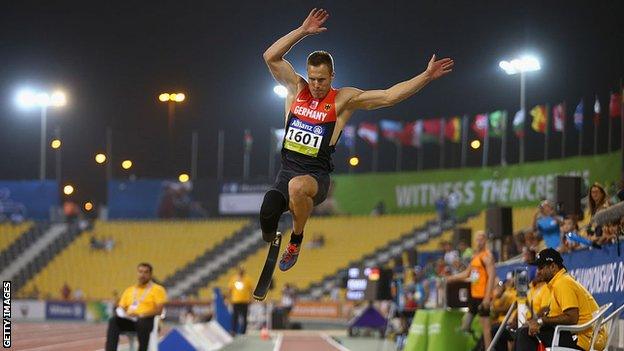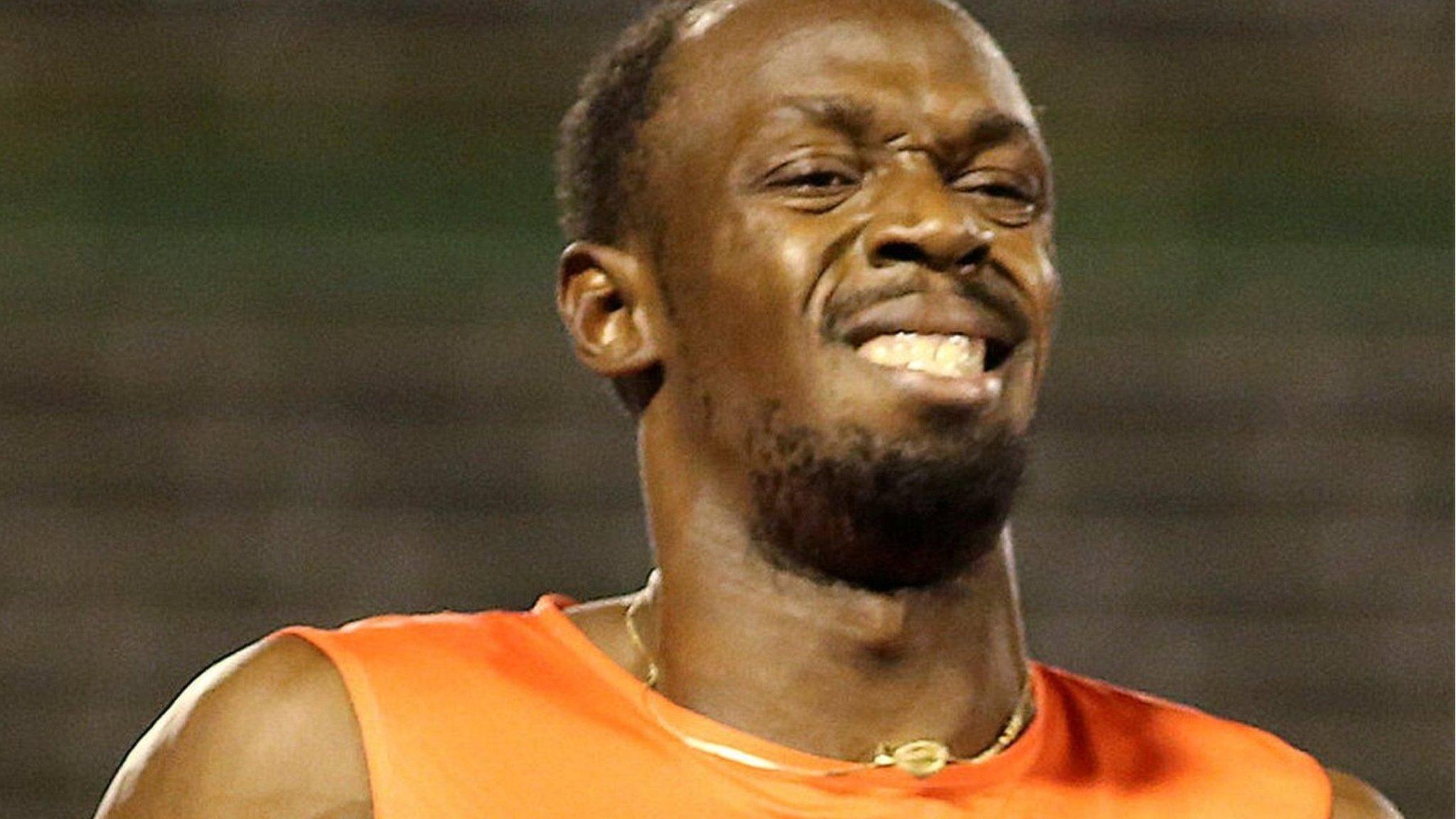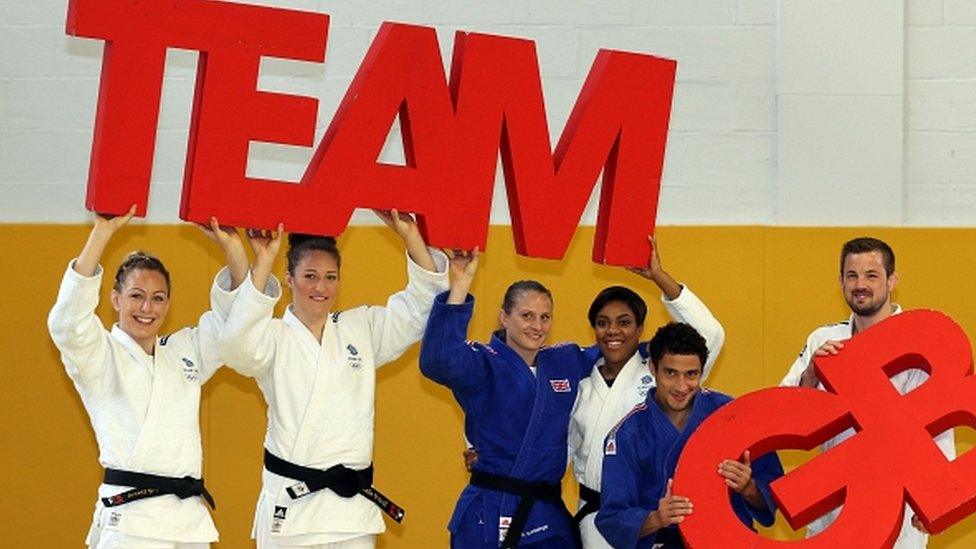Rio Olympics: Paralympian Markus Rehm will not compete in Rio long jump
- Published

Markus Rehm has a carbon fibre prosthesis after losing his lower right leg in a boating accident as a teenager
Paralympic long jumper Markus Rehm will not compete at August's Rio Olympics after failing to prove his prosthetic leg does not give an unfair advantage.
Rehm, 27, won Paralympic gold in 2012 and was hoping to become the second athlete with a prosthesis after Oscar Pistorius to compete at the Olympics.
IAAF rules say amputee competitors must prove they do not have an advantage.
The German still intends to make the Paralympics and hopes to be eligible for the 2017 World Championships.
Rehm will now work with athletics' governing body on a rule change allowing athletes to compete in London next year after what the IAAF described as "extremely constructive and positive" talks with general secretary Jean Gracia.
Rehm had commissioned a scientific study hoping to prove he did not get an advantage, with a report last month indicating no clear edge over able-bodied athletes.
The study showed that amputees such as Rehm had a less efficient start but a more efficient jump.
Last year, Rehm jumped a Para-athletics world record of 8.40m to win the IPC world title in Doha.
That distance would have beaten Briton Greg Rutherford's winning leap at the 2012 London Olympics by nine centimetres.
South African Pistorius, who has two prosthetic legs, competed at London 2012, reaching the semi-finals in the individual 400m, and competing in the 400m relay final.
- Published2 July 2016

- Published19 July 2016

- Published13 May 2016

- Published19 July 2016
